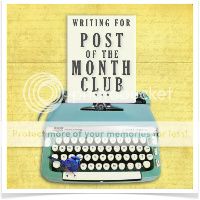I am now living free from depression, and have been for several years. This I believe is due to a combination of grace, dogged determination, extreme self-care, and becoming a warrior in my own defense over the course of six years.
I'm going to be talking about my healing journey from time to time on the blog. Your journey will be so different from mine, but I hope my journey can inspire yours.
{And remember, if you need help right now, don't read my blog - call someone you know. Call your doctor, your friend, or a local help-line. Call anyone who likes you or anyone who helps people. You don't need to figure out what to say or make a lot of effort. Just say "I need help." OK? Then later when you feel better (you will) you can come back and read my blog.}So this week someone emailed to ask me if I would write about how we can deal with loved ones who are depressed. This is a big, important question, and I won't speak to all of it today. Today I'll just give you a few suggestions to start with.
If you haven't ever been seriously depressed yourself, it can be really, really hard to understand what your depressed friend is going through. You want to help, and you want them to feel better. You may even be a little annoyed with them. And you're ready and willing to step up with your ideas to make them feel better. Usually you base these ideas on what makes you feel better when you are down.
But a depressed person isn't just "feeling down." Many times, your loving cheer-up strategies can actually make them feel worse. I know you don't want to make them feel worse. So from my own experience, here's a list of do's and don'ts for helping your friend:
- DON'T point out all the good things in your friend's life. She already feels guilty enough about not being able to appreciate these things.
- DO point out all the good things about your friend. Not the things she does or has, but the things she is. Remind her why you love her and remind her that she deserves good things just for being herself.
- DON'T take her out to do "something fun" to cheer her up. A spa day or a fancy dinner or a party are not things that she can enjoy right now. She's probably not very comfortable being out in public, and she'll get angry at herself for not being able to enjoy the things she used to enjoy.
- DO take her on a short, simple, undemanding outing, or volunteer to drive her to the doctor/therapist/counselor. About ten years ago in the depth of a bad episode, a friend came over and said 'I'm taking you on a little walk. Don't dress up. Put your shoes on. We don't have to talk.' It was a long, silent walk, and I was kind of mad at her. I did not enjoy the walk. But it was a turning point after which I found enough energy to start to help myself. I am still so grateful to that friend for that walk.
- This one may seem obvious, but you'd be surprised what some people consider a good cheer-up strategy: DON'T ply her with alcohol, recreational drugs, or junk food. Come on, her brain chemistry is already out of whack. That glass of wine/huge slice of cake will NOT help her to relax, plus she may be on medication that she shouldn't be mixing with alcohol. And she won't tell you that.
- DO ply her with light, nutritious food. Bring over a pot of soup just because. Bring over a bag of really nutritious groceries that are easy prep. Don't over-explain, just drop the stuff off and give her a hug and leave.
- DON'T offer your opinions about anti-depressant medication. If you think meds are a dangerous scam by big pharma, if you think doctors are overprescribing, if you've heard about this or that dangerous side effect, OR if you think she needs to get on the Prozac already, either way, PLEASE just keep it to yourself. If she tells you about her experience with medication, just listen. Lots of medications have side effects. Do you routinely offer opinions on your friend's birth control pills or blood pressure meds? I didn't think so.
- DO encourage her to talk to her doctor, and or encourage her to get a second medical opinion if the subject of meds comes up and you can see she's struggling. Don't weigh in on the question, just encourage her to see a professional. The one exception to this rule: if she is saying she wants to quit taking her medication by herself, cold turkey. This is where you want to step in and say "Hey, I'll drive you to the doctor. I understand that you want to quit your medication, but please don't do it by yourself. I'll call and make the appointment for you if you don't feel like getting on the phone."
- DON'T give up on her. I know you may feel like you've lost your friend. I can pretty much guarantee she feels like she's lost herself too. You may feel rejected and frustrated, but if you believe in her ability to heal and come back to herself, it will help her to believe too.
- DO keep loving her, but remember to take care of yourself too. It's OK to say no if she's being needy and clingy, and it's OK to go do fun things with other friends. Keep the door open, but keep your own boundaries strong.




No comments:
Post a Comment